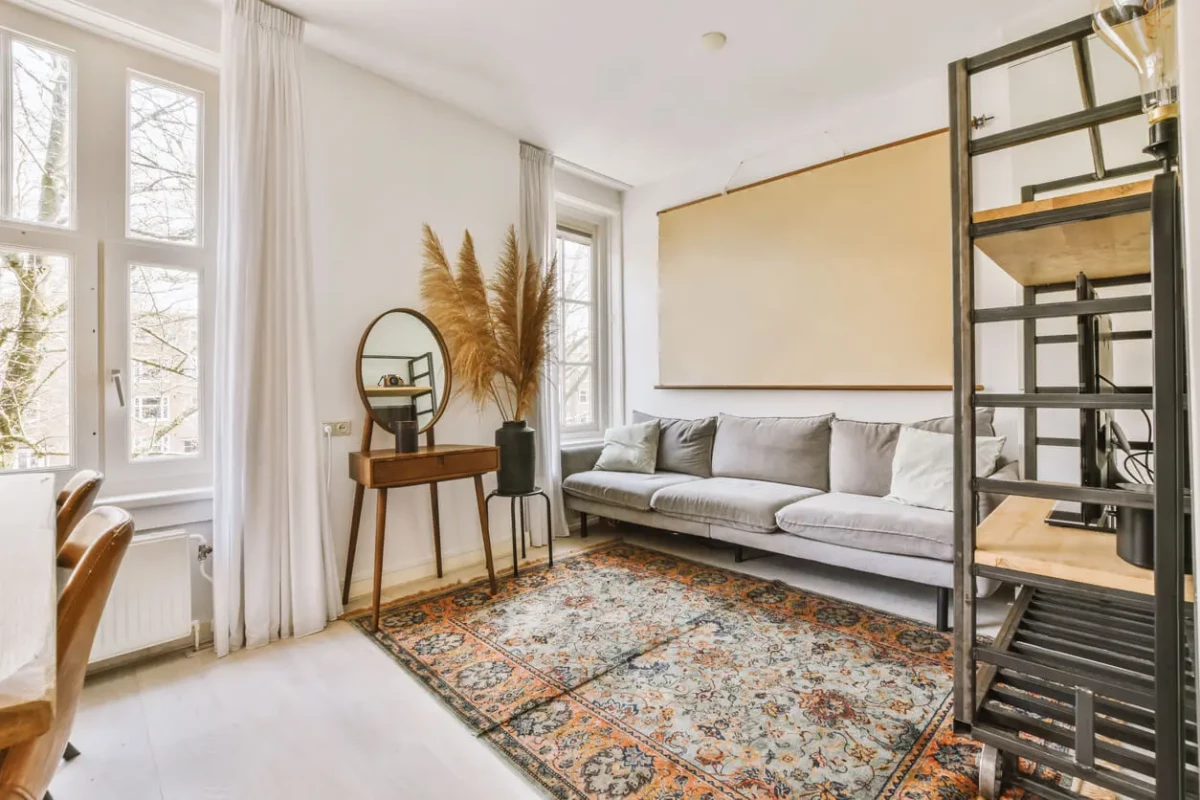Comment monter un dossier bancaire pour un investissement locatif ?

La recherche de financement à crédit est une étape importante dans un projet immobilier locatif. De plus, financer votre investissement au moyen d’un prêt immobilier peut vous faire profiter de l’effet de levier du crédit. Généralement, l’emprunt au niveau de la banque est le plus intéressant tant sur le contrat qu’au niveau du montant. Toutefois, qui dit prêt dit document bancaire pour faire la demande. Alors, comment constituer un dossier de demande de crédit pour un investissement locatif ? Les réponses dans cet article.
Meeting key conditions required by banks
The banker needs insurance to give you the loan. They will look at your bank account history to get a clear picture of your standard of living and habits.
The debt ratio
The first element that the banker looks at is the debt ratio. This notion is important for taking out a bank loan as it corresponds to the borrower's capacity to get into debt. This rate is currently set at 35%.
Income
Before granting a bank loan for a property investment, the banker also checks your income. In doing so, they want to be sure of your ability to repay. This includes regular salaries and bonuses as well as 70% of the property income from your future property purchase.
The charges
Charges include your current credit and all your monthly expenses. In France, loan insurance premiums have been included in the charges since 2021.
The contribution
L’apport est le montant minimum dont doit disposer l’emprunteur pour obtenir un prêt immobilier. Il est toutefois possible que la banque vous emprunte de l’argent sans apport dans le cadre d’un investissement immobilier locatif. Toutefois, avoir ce montant minimum constitue une assurance en plus pour votre demande de crédit immobilier.
Take care of your accounts in advance
Before putting together your application for the loan, you must take care of your bank account in order to pass the inspection phase by the banker. The acceptance of the loan for the financing of your project depends on the risk you give the bank.
Have a constant balance for the last three months
During the analysis of your banking data, the bank will take into account your expenses over the last three months to assess the risk. The aim is to give the bank confidence that you are not in the red in order to improve your image. It is also important to check your accounts before launching the project. It is better to postpone the application for a few months than to receive a rejection for the loan file.
Have savings
Faire des économies vous permettra de vous constituer un apport personnel. Par ailleurs, c'est l'un des facteurs décisifs pour l'acceptation de votre dossier de prêt immobilier auprès de la banque. Aussi, si vous n'avez pas encore commencé à épargner, il serait judicieux de mettre en place un virement automatique. Vous obtiendrez ainsi une meilleure appréciation auprès des établissements bancaires.
Provide professional and personal details
The method of analysing your file varies from one bank to another. In order to facilitate the task of the borrowing organisation, it is advisable to highlight your strengths and weaknesses. This may help to validate your application.
The work situation
Being on a permanent contract (CDI) in a company or a civil servant gives you more credibility with the bank. You will also have a better chance of obtaining your financing. You can mention your seniority and your prospects for development to reassure the bank. In the case of a fixed-term contract in a company, it is important to provide proof of regular income for at least 6 months to facilitate the constitution of the file.
The personal situation
It is also important to mention the personal situation. The presence of a co-borrower generally reassures the banks if you are planning to invest in property together. In addition, if you have children, the taxation of rental income will be weighted, which will reduce your debt ratio.
Provide the minimum documents required to apply for a rental investment loan
In order to get a loan for a rental property investment from the banks, you must provide the necessary documents. If the file is incomplete, the banks will systematically refuse to examine your application.
Documents proving your identity
A bank file for a rental investment includes many supporting documents. The documents relating to your personal situation required are as follows:
-
Identity card, passport or residence permit in France;
-
Proof of address;
-
Proof of your current family situation (marriage contract or other).
Please note that you must bring the originals with the copies. The originals will be returned to you after verification.
Documents relating to your professional activity
In addition to the documents specifying your identity, the necessary documents related to your professional activity are also required, namely
-
Proof of income (pay slip and employment contract);
-
The last two tax notices ;
These documents will allow the bank to estimate your cash inflow.
Documents relating to the property project
It is also necessary to provide documents justifying the use of the loan. In particular, you must provide :
-
A compromise sale for the purchase of an old property;
-
The cost of various works ;
-
Le contrat VEFA(Vente en état futur d'achèvement);
-
The completion guarantee and the repayment guarantee for a property under construction.
For a loan, each of the two borrowers must bring their respective documents.
Proof of income from assets
Si votre apport provient de la vente d’un autre bien immobilier, vous devez apporter le compromis de vente comme justificatif. Il en est de même pour votre épargne et tout autre montant à votre disposition. La transparence vous sera plus que favorable pour la constitution et la validation de votre dossier.
De plus, l’investissement à crédit est un travail mutuel entre vous et l’établissement bancaire, puisque le contrat peut durer jusqu’à 20 ans. Aussi, avoir un apport vous permettra de négocier les conditions du prêt pour réduire le montant à rembourser.
In order for the bank to borrow the amount needed to complete your investment project, you must prove your future rental income. This can be done by bringing the existing rental contract or two income statements from different estate agents.
Select the best bank
In general, the criteria for accepting a loan application are the same for all bank customers. However, some financing institutions keep a margin in the apprehension of the percentage of rental income. In particular, they take into account the tax reduction, the tax exemption and the exceeding of the debt ratio.
Therefore, in order to have your investment application accepted, you need to present your project to several banks. Only the borrowing conditions of the lending institutions vary. The advantages often remain the same.
Get assistance from a professional broker
Si vous avez des doutes concernant votre dossier, vous pouvez faire appel à un courtier. Ce dernier vous donnera les conseils nécessaires pour effectuer votre prêt immobilier en France. Il vous accompagne dans l’obtention du financement pour l’acquisition de votre logement locatif.
De plus, l’avis d’un courtier concernant chaque banque vous permettra de choisir le meilleur organisme prêteur. Les clients d’un courtier en prêt obtiennent généralement leur financement, devant pourtant payer le coût des services proposés.
The broker has the maximum amount of information on the banking market and will defend your loan file to obtain the best rate. In particular, he or she can negotiate the penalties for early repayment. The broker offers you the opportunity to proceed with the purchase of your rental property more quickly. In this sense, it will allow you to save time and money for a serene rental investment.
L’impact du crédit sur la gestion du patrimoine
Le recours à l’emprunt influe considérablement sur la manière de gérer un patrimoine immobilier. Contracter un crédit ne se limite pas à financer l’achat d’un bien : cela structure aussi toute la stratégie patrimoniale autour de plusieurs leviers financiers essentiels.
Effet sur le cash-flow et la trésorerie
L’emprunt implique le paiement de mensualités régulières qui viennent diminuer le flux de trésorerie généré par le bien loué. Il devient alors primordial d’effectuer un suivi rigoureux des entrées et sorties d’argent pour s’assurer que les loyers couvrent bien les échéances du prêt ainsi que les charges courantes.
Une bonne gestion de la trésorerie aide à anticiper les éventuels imprévus, comme une vacance locative ou une grosse réparation.
Constitution d’une réserve de liquidités
L’endettement permet, paradoxalement, de préserver une partie de son épargne en n’engageant pas tous ses fonds propres dans l’investissement. Cette réserve de liquidités offre une sécurité en cas de besoin urgent et permet de saisir rapidement d’autres opportunités d’achat immobilier ou de réaliser des travaux sur un bien déjà détenu.
Levier d’endettement pour financer de nouveaux projets
Le crédit agit comme un accélérateur de développement patrimonial. En remboursant régulièrement le capital, l’investisseur peut asseoir sa capacité d’emprunt auprès des banques. Cela facilite, à long terme, la négociation de nouveaux financements et la constitution d’un portefeuille immobilier plus important.
Maîtrise du risque de taux
Le choix du type de taux (fixe ou variable) impacte la prévisibilité des charges sur la durée du prêt. Un taux fixe garantit la stabilité des mensualités, alors qu’un taux variable peut rendre les remboursements plus incertains si le marché évolue. La gestion de ce risque est donc un enjeu central pour assurer la pérennité du patrimoine.
Rôle de l’assurance emprunteur
Enfin, souscrire une assurance emprunteur sécurise l’investisseur et ses proches en cas d’accident de la vie. Cette protection permet d’éviter de mettre en péril l’équilibre financier du foyer ou de devoir revendre le bien dans l’urgence. L’assurance sur le long terme devient ainsi un outil clé de la gestion patrimoniale.
These articles may also be of interest to you
-

En 2026, le seuil LMNP varie selon le type de location meublée : 77 700 € pour longue durée et touristiques classés, mais seulement 15 000 € pour meublés touristiques non classés avec abattement réduit à 30%. Dépasser ces plafonds impose le régime réel avec comptabilité complète, déduction des charges et amortissement, tandis que dépasser 23 000 € + 50% des revenus d'activité bascule en loueur professionnel (LMP).
-

Choisissez votre ville d’investissement locatif avec une méthode simple : rendement brut, tension locative, prix au m² et demande locale (étudiants, jeunes actifs). Saint-Étienne (9,4% brut, 1 408€/m²) et Mulhouse se distinguent par leur ticket d’entrée bas, mais validez toujours le quartier pour limiter la vacance.
-

La garantie de revente protège votre investissement si un événement prévu au contrat vous oblige à revendre à perte, avec une couverture annoncée jusqu’à 10 ans (sans franchise) et un plafond pouvant aller jusqu’à 60 000 € selon conditions. L’indemnisation se calcule à partir de la différence entre le prix de vente net (prix de vente – frais d’agence) et le prix d’achat total (prix d’achat + frais de notaire + frais d’hypothèque + travaux prévus dans l’acte de prêt), dans la limite indiquée (jusqu’à 20% du prix d’achat total).



